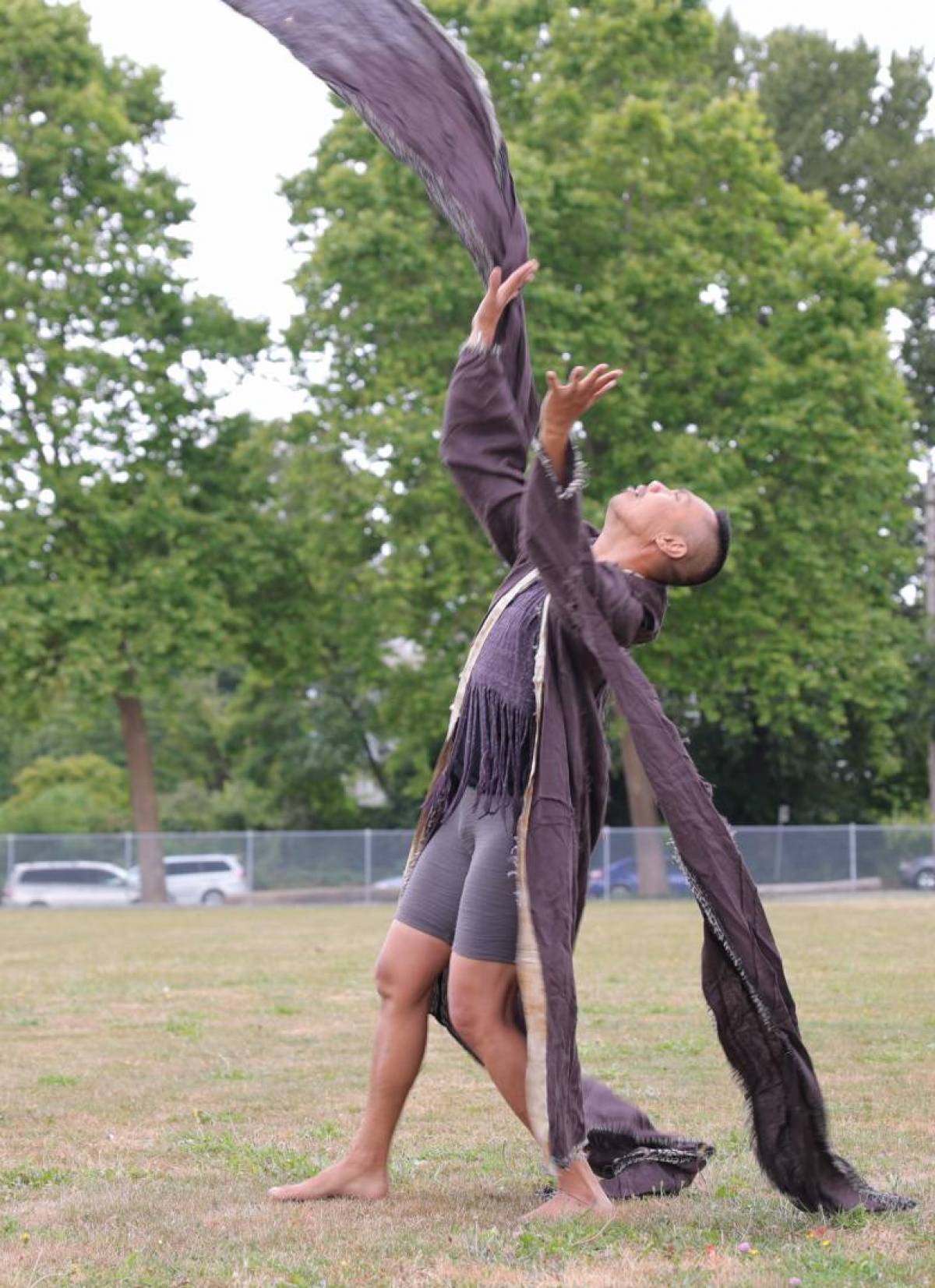Carlito Pablo, Georgia Straight on July 27th, 2021
This year’s Queer Arts Festival marks a homecoming for dancer and choreographer Alvin Tolentino.
The founder and artistic director of the Co.ERASGA dance company said that he was one of the original performers in the Vancouver festival when it started as Pride in Art in 1998.
“It’s kind of a full circle to come back to it and to be part of it again,” Tolentino told the Straight in a phone interview.
The 2021 Queer Arts Festival runs until August 13 and reunites Tolentino with E. Kage of Onibana Taiko.
Onibana Taiko is a three-member ensemble that blends traditional Japanese drumming with other art forms and what festival organizers describe as “feminist queer punk aesthetics”.https://12306f8e14e35d8971988c32112a3525.safeframe.googlesyndication.com/safeframe/1-0-38/html/container.html
The band formed in 2016, bringing together Kage, Noriko Kobayashi, and Leslie Komori.
In connection with Kage, Tolentino related that he created a work called OrienTik/Portrait in 2005. In it, he and dancer Andrea Nann performed to the music of Kage on the taiko (Japanese drum) and classical pianist Alison Nishihara.
“They played experimental, traditional, and contemporary music, and so I worked with them at that time to create a full-length piece,” he said.
When Onibana Taiko was creating a concept for the 2021 Queer Arts Festival, Tolentino’s name came up.
“This is a reunion, in a way,” he said about Kage.
Tolentino and Onibana Taiko will present a dance-and-music performance called Ceremony for Rebel Spirits on August 7. The show starts at 8 p.m. near the Chinese pavilion of Vancouver’s Mountain View Cemetery (5455 Fraser Street).
Tolentino explained that Ceremony for Rebel Spirits will represent the obon, a traditional summer festival in Japan honouring the dead.
“The narrative is about this reawakening of the spirits and being with the spirits,” he said about the collaborative work.
The obon is held in Japan during August, and it is believed that the spirits return to visit their loved ones at this time. It is an occasion for family reunions.
Customarily, people visit ancestral graves and bring flowers and pray for the dead. Tolentino noted that obon is similar to a cherished tradition in the Philippines called All Saints’ Day, which is marked on November 1.
As with Japan’s obon, the joyful event is a time for families to get together and share memories.
This Philippine occasion of remembering the dead is also called undas, said to have come from the Spanish word honra (“honour”).
“It has that kind of similar feeling, and the dance which I’m going to evoke is about meeting the spirits, and the music awakens those spirits as part of the festivity,” Tolentino said.
Onibana Taiko’s logo features an image of the higanbana, or red spider lily, which grows on Japanese grave sites.
Tolentino said Ceremony for Rebel Spirits seeks to commemorate people who fought for noteworthy causes and against all forms of discrimination.
Communing with spirits also serves as a reminder of unfinished struggles and the need to persevere.
“Queer people still get bashed in other parts of the world, and being gay is still not being accepted in some other parts of society,” Tolentino noted.
He pointed out that queer artists have a particular knack to “provoke” serious examination of issues in society.
“And so as queer artists, we cannot stop. We have to continue to fight for freedom and acceptance,” he said.
This is why Tolentino feels happy returning to the Queer Arts Festival. “Our story is still the same and still continuing to be rebellious,” he said.
As gay man and artist of colour, Tolentino is the quintessential rebel.
“I have always followed my creative instinct. I do not follow the crowd to create my work. I have stayed true to my calling,” Tolentino said.
He added that he’s proud to be a part of the festival’s legacy.
“I was there to signify the relation of queer arts and dance in a generation wherein art for queer was just being talked about or just beginning to bloom in Vancouver,” Tolentino said.
For Tolentino, “being a rebel is doing, continuing, and redefining the idea and meaning of being an artist for 30 years, and now, to dance for the dead in the spirit of obon”.

